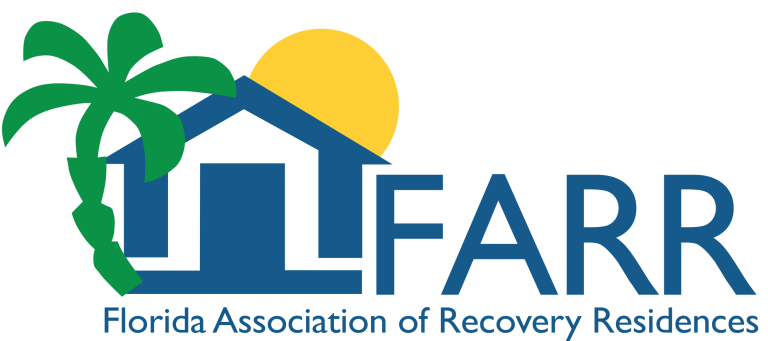Depression is a common mental disorder that has an impact on millions of people globally. WHO indicates that more than 264 million people have depression worldwide. This statistic is quite disturbing and underlines the need to know how to help people who face this condition. This blog gives tips and practical ways on how you can help an individual with depression.
Understanding Depression
It is a mood disorder that is defined as more than just feeling sad; it interferes with a person’s typical routine. Symptoms of depression can vary but often include:

Emotional Symptoms: Persistent feelings of sadness, loss of hope, and apathy towards things that the patient used to enjoy.
Physical Symptoms: Changes in appetite or weight, sleep disturbances, and fatigue.
Cognitive Symptoms: Inability to concentrate, poor problem-solving, and memory loss.
Types of Depression
Depression has different types. Some common types include:
- Major Depressive Disorder (MDD): Organized by a persistent state of depression, that is, a state of depression that lasts for an extended period.
- Dysthymia: A less severe, long-term form of depression that lasts for at least two years.
- Bipolar Disorder: Characterized by two or more episodes of depression and one or more episodes of manic or mixed symptoms in their lifecycle.
Causes and Risk Factors
Depression is a complex disorder that is caused by the interaction of several factors, including biological, psychological, and social. Potential causes include:
- Biological: It has to do with one’s genes and the brain’s chemistry.
- Psychological: It is post-traumatic stress disorder, chronic stress, and some personality disorders.
- Environmental: Life events such as the loss of a loved one, financial difficulties, or major life changes.
Educate Yourself
Reliable Sources
It is important to learn more about depression to be able to support someone effectively. Some resources to help include:
- Books: Some of the recommended books are “The Noonday Demon” by Andrew Solomon and “Feeling Good” by Dr. David D. Burns.
- Websites: NIMH, Mayo Clinic, and Mental Health America.
- Organizations: American Psychological Association (APA), World Health Organization (WHO).
Myths and Facts
This knowledge prevents the spread of misconceptions about depression.
- Myth: Depression is simply the state of being sad.
Fact: Depression is a severe mental illness that needs the services of a professional.
- Myth: People with depression can “snap out of it.”
Fact: Depression is not something one can decide to have, and it may take a while for one to recover.
Empathy and Understanding
Understanding the feelings of the person with depression is very important when providing help. Try to see the world from their perspective and accept their emotions without prejudice. Remember, your role is to provide support, not solutions.
Support is available—you've taken the first step by starting your research.
Lorem ipsum dolor sit amet, consectetur adipiscing elit. Ut elit tellus, luctus nec ullamcorper mattis, pulvinar dapibus leo.
You can also start by checking your insurance coverage online.
Communication Strategies
Starting the Conversation
It is not easy to discuss the issue of depression.
- Choose the Right Time and Place: Choose a calm and private place to discuss the matter.
- Express Concern Gently: Say things like, “I’ve noticed you’ve been feeling down lately, and I’m worried about you.”
Active Listening
Active listening means being fully present and giving attention to the speaker. This means:
- Listening Without Interrupting: Let them say what they want to say.
- Reflecting: Summarize what they have said to show that you have understood.
- Showing Empathy: Acknowledge their feelings by saying things such as, “That sounds tough.”
What Not to Say
Avoid statements that can be dismissive or harmful, such as:
- “Just cheer up.”
- “It’s all in your head.”
- “Others are worse off than I.”
Contact Solutions Healthcare
Battling with Drug and Alcohol Addition? Remember, you are not alone and we are here to help you!
Practical Support
Daily Assistance
Find ways in which you can be of assistance in their day-to-day activities to reduce their load. This might include:
- Household Chores: Cleaning, cooking, or doing other chores such as doing errands.
- Companionship: To overcome the loneliness, engage in activities that would enable them to spend time with other people.
Encouraging Professional Help
It is wise to persuade the person to consult with a specialist. Here’s how to approach it:
- Be Supportive: Suggest seeking help from a therapist or a doctor in a very polite manner.
- Offer to Help: Help in identifying a healthcare provider or scheduling an appointment.
- Provide Information: Describe the therapeutic procedures and how they can help.
Supporting Self-Care
Self-care is important in the management of the condition, and the following may be useful in encouraging self-care:
- Physical Activity: Propose to take a walk or fondle lightly.
- Healthy Eating: Prepare and share some balanced meals or cook food with the patient.
- Sleep Hygiene: Explain to them the need to stick to a certain schedule in terms of sleep.
5. Be Patient and Persistent
Understanding the Timeline
The healing from depression is a slow and consistent process. It’s essential to:
- Manage Expectations: It may take time, and there will be good days and bad days, but that is normal.
- Stay Committed: Consistent support over time can make a significant difference.
Handling Setbacks
Relapse is a common phenomenon that is seen in the process of recovery. Here’s how to handle them:
- Stay Positive: Encourage them to view setbacks as temporary.
- Be There: Continue to offer support and remind them of their progress.
Consistency in Support
Ongoing motivation can be offered when there are follow-up meetings at certain intervals. Whether it’s a phone call, text message, or visit, consistent communication shows that you care.

It is not easy to help a person experiencing depression but even the little that you can do goes a long way. Learning about depression, listening to them, being there for them practically, and ensuring the carer is also well can help the person positively on their road to recovery. Do not forget that you are supported, patient, and empathetic—and all those are valuable.
If you or a loved one is struggling with depression, check out our depression treatment program offered at Deland Treatment Solutions or give us a call at (386) 866-8689 to learn how we can help you.





























